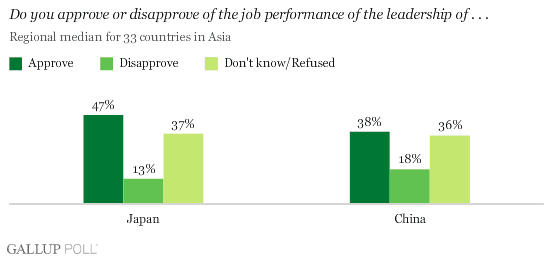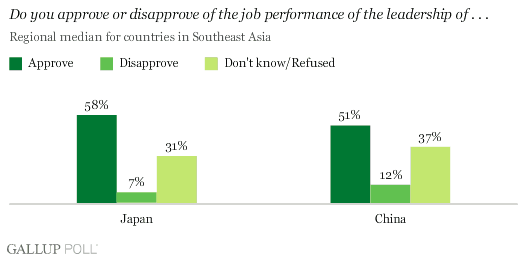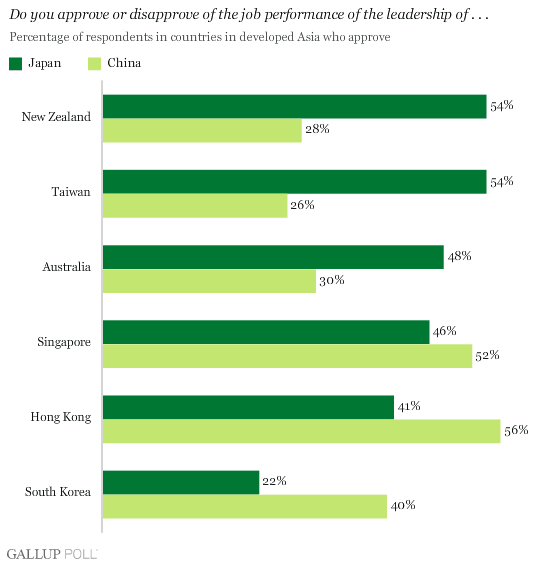WASHINGTON, D.C. -- Japan grants billions in development aid each year to Asia, while unofficial estimates suggest China gives considerably less. Despite the affect this could have on sentiment, median approval of Japan's leadership in the region is only slightly higher than approval of China's leaders.

In 2006, Japan granted more than $11 billion in Official Development Assistance around the world, of which about half remained in Asia. Gallup Polls in the region suggest the substantial aid may be paying off in terms of public opinion in the region, but in only slightly larger dividends. In Southeast Asia, for example, where Japan directs much of its development assistance, a median of 58% said they approve of the job performance of Japan's leadership, compared with a median of 51% who said they approve of the job performance of China's leadership.

There is more variation in opinion toward Japan's and China's leadership in developed Asia, perhaps much of it for political reasons.

In Taiwan, for example, with its long history of fighting for independence from China, it is not surprising that respondents were more likely to say they approve of Japan's leadership than China's leadership. Respondents in Australia and New Zealand, who share similar democratic ideals with Japan, were also more likely to approve of Japan's leadership than China's leadership. Conversely, South Korean respondents, perhaps remembering the days of Japanese colonial rule, were more likely to approve of the job performance of China's leadership than Japan's leadership. Respondents in Hong Kong and Singapore were also more likely to express approval of China's leadership than Japan's leadership.
Before Japan tries to improve its standing in Asia, however, it may need to first enhance its standing at home. In 2007, only 32% of Japanese respondents said they approve of the job performance of the leadership of their own country. The possibility of stronger economic ties with China, which was a recent topic of discussion between China's President Hu Jintao and Japanese Prime Minister Yasuo Fukada, could help boost Japan's ailing economy. However, this may be a tough sell domestically. In 2007, only 16% of Japanese said they approve of the job performance of China's leadership.
Survey Methods
Results are based on face-to-face interviews with approximately 1,000 adults throughout 2006 and 2007, aged 15 and older, in 33 countries. For results based on the total sample of national adults, one can say with 95% confidence that the maximum margin of sampling error is ±3 to ±5 percentage points. In addition to sampling error, question wording and practical difficulties in conducting surveys can introduce error or bias into the findings of public opinion polls.